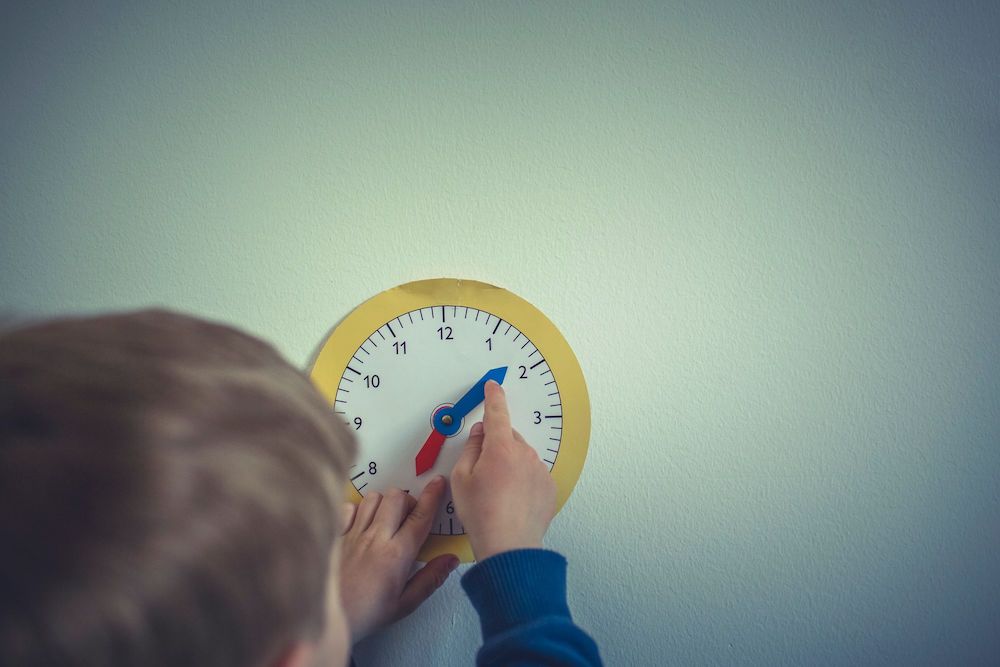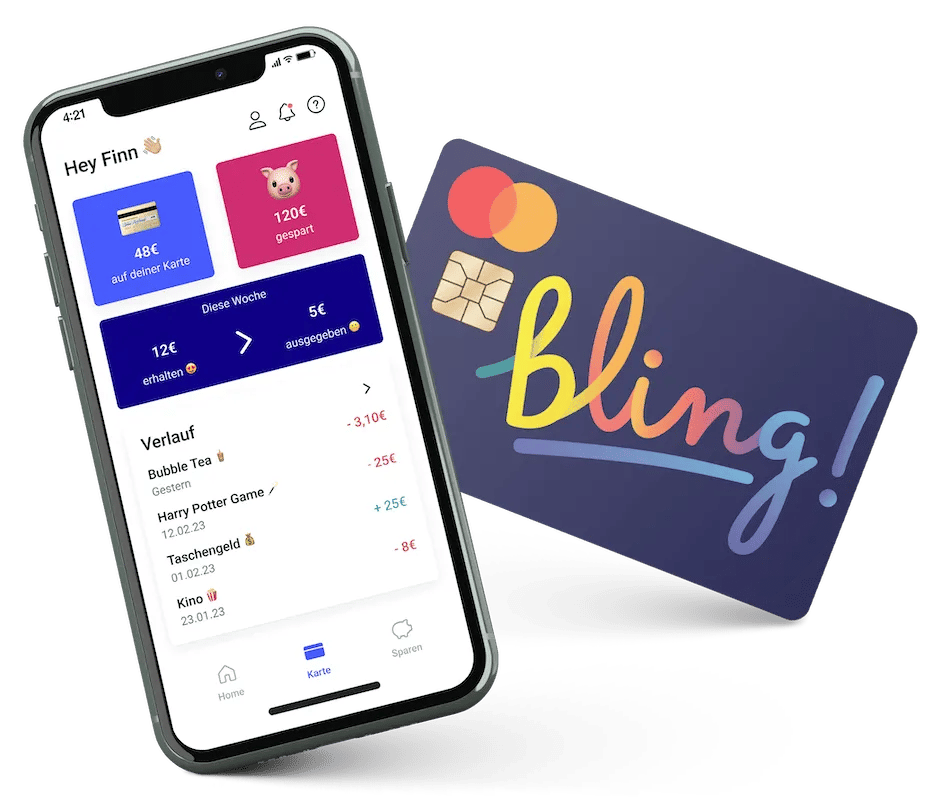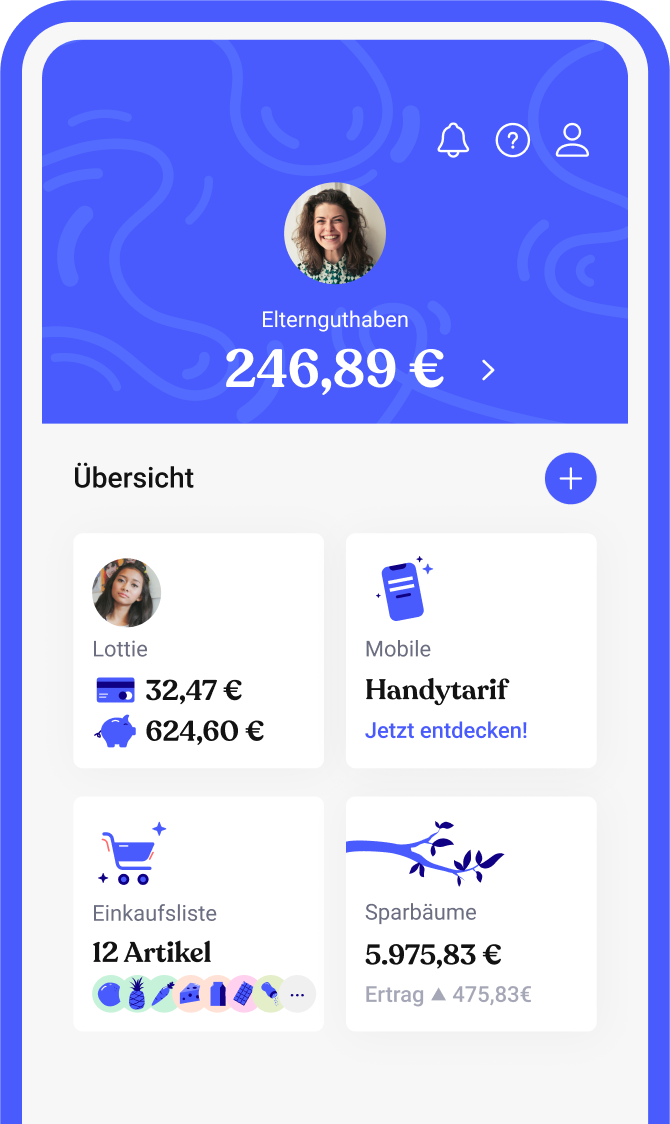Why is rhythm important?
Pocket money on the 1st of the month and sometimes on the 3rd is like a favorite program that only runs now and then on a full moon and a wheel of fortune at the coffee machine. Yes, even before breakfast.
Or have you ever read a parenting guide in which habits don't play a role? Exactly. Neither do we.
No wonder: We humans simply love habits. They help us to manage our strength, to complete unpleasant tasks with ease and to look forward to nice things. Your child understood that a long time ago. Not consciously, of course. But brushing your teeth before bed is just as much a part of it as looking forward to swimming lessons on Wednesday on Mondays, isn't it?
It's the same with money.
If you don't get your salary on time, you get nervous. And rightly so: After all, the rent is charged and you've been looking forward to girls' night out in the cocktail bar or the stadium with your buddies for days. Your kids feel the same way. For them, however, it is not rent, cocktail party and soccer game, but the new comic book and their favorite chewing gums.
So if your child has been looking forward to the latest stories about Donald Duck, Batman and Co., for days, then treat him to the pleasure of being able to buy the magazine on time.
But that's not enough. Because it always boils down to the same thing: Comic book and chewing gum will eventually turn into rent, cocktail evening and stadium visit. A fixed rhythm for paying pocket money is therefore nothing more than preparation for life. With comics only.
If you want
Which rhythm is appropriate?
It is therefore clear that there must be a rhythm. But which one?
The answer is as simple as it is tricky: yours. The main thing is that it is based on the calendar and not on school grades, moon phases or mood.
The recommendation of Ministry of Family Affairs: It recommends for children up to and including nine years of age, a weekly payment of pocket money. The reason: Younger children are not yet ready to plan a whole month in advance.
So when the wallet is already empty on the second day, the frustration is great. But luckily it won't last long, because the next pocket money is already in sight. They can survive the short period of one week better without pocket money than a month without losing the fun of it. And you don't have to resist the sad look for so long, which would gladly ease you by one or two euros.
The initial frustration is therefore gradually followed by the realisation that pocket money must be better managed. As soon as the time comes, you can expand the rhythm. The Ministry of Family Affairs recommends a monthly payout as soon as your child is ten years old.Our tip:
If switching from weekly to monthly is too hard for you and your child, take a small interim step. In a transition phase, you pay your pocket money every 14 days.
If you want
Find your rhythm together
Your head is probably already rattling and you are weighing up which day of the week is the best for pocket money. Monday? Or would you prefer Friday as a treat for the weekend?
We have good news: You don't have to make this decision alone. Your child certainly has their own idea of what they want to do with the money. And above all: when. So don't put a finished plan over son and daughter like the scratchy wool sweater before visiting their grandparents, but let them participate in the decision. In this way, they learn directly that every decision has an impact on their lives.
Of course, this applies not only at the beginning, but also on an ongoing basis. If you have initially agreed on Friday, that is not a decision until the next pocket money increase. Give yourself some time to find the right rhythm. Maybe your kids will soon realize that spending pocket money with friends during the week is more fun than reading comics alone on the weekend.
If you want
How strict is the rhythm?
If the rhythm were human, it would wear a 2-millimeter short haircut and a whistle around his neck. His merciless eyes would always keep a close eye on the radio-controlled clock. Because the rhythm is strict. Once it is found, it wants to be complied with. Absolutely.
Even the sweetest look and the bitterest tears leave the heart cold from the rhythm. If the wallet is empty, it is empty. He doesn't know anything about that.What does that mean for you?
Once you have agreed on a rhythm, it is binding on both sides. This does not mean that it cannot be adapted in joint discussion. But advance pocket money? Definitely not! Forgot payday? Nothing there The rhythm is far too proud for that.
Don't ask for the payout, but pay out the money yourself. This saves you unpleasant situations and your child the nasty feeling of dependence. If you let your begging eyes relieve you by a few euros before the appointment, the money-wise learning effect will disappear faster than you can say “pocket money.” Why should your child also be frugal if he knows exactly how quickly he will receive “fresh money”?So keep yourself to the rhythm just as strictly as you expect from your child.
If you want
If necessary: Take a step back
The rhythm is strict but not merciless. If you have agreed on a monthly rhythm, that is also not forever. If you have the feeling that your child wasn't ready for this step yet, simply take a step back. At 14 days or even a week.
If you want
Tips and tricks for your pocket money rhythm
Is your note already full of notes for your individual pocket money rhythm? perfect Before you draw a line below and write down the result, we have a few tips for you:
If you want
This is how you don't forget pocket money
Work, shop, cook food, hairdresser, doctor. Everyday family life goes haywire. Make beds, wash clothes, put away the dishwasher, clean the hallway. You know that.
It is completely normal that one or the other is forgotten. But don't let it be pocket money!
Our tips against forgetting pocket money:
If you want
Tip 1: A reminder in the cell phone
July is still at the top of the calendar on the wall on August 5th. Or even June. Enter a reminder of pocket money here? Pointless!
But you have your smartphone in your hand every day. So simply use the calendar function and enter the pocket money payout here. With an alarm, of course — safe is safe.
Important: Don't forget to turn on the continuous repetition of the reminder. Most standard calendars support a weekly, 14-day, or monthly reminder. If that's not the case with your phone, there are countless calendar apps that can do it better.
If you want
Tip 2: The standing order
If your child is older, they certainly have a current account. You can transfer your pocket money very easily via a standing order.
If you want
Top tip: Use Bling's pocket money planner
Your child is already receiving his pocket money completely relaxed on his Bling Card? Clever!
In the Bling app, you will probably already have the pocket money planner discovered. It automatically sends the money to your son and daughter's card. And at exactly the rhythm you've agreed on. You choose the day of the week and the rhythm: weekly, biweekly or monthly. It's done.
Particularly practical: If your son has been talking about a mountain bike for a long time and your daughter is reluctant about going to a concert, you can automatically set aside some of the pocket money for it.
If you want
Adjust pocket money to your own rhythm
Does your salary always come on the last working day of the month? As soon as your child is old enough, talk about it openly. You then simply place the allowance payment on the last working day. In this way, your child gets used to the payment rhythm of a salary and you have completed all expenses directly. So you don't have to miss out on your girls' night out or a visit to the stadium just because you forgot to set aside your pocket money.
If you want
Convert money into time
The topic of saving in particular is really tricky at the beginning. So don't just talk about 1.50 euros for the comic book, but also about time. If your child receives 1.00 euros in pocket money every week, Batman's new adventures are still 14 days away. And then there's even a pack of chewing gum on top.
If you want
Don't make a taboo subject out of it
This applies to everything related to pocket money: Talk about it. This is the only way to ensure that your child is coping with the monthly rhythm or has understood why they can't go to the movies again until next month.
If you want
Would you like to make paying pocket money easy for yourself? Get bling!
From a pocket money planner to a perfect overview: With bling, you make your family money wise. And make your life easier. You don't believe that? Discover all the features of the Bling Card!
If you want























